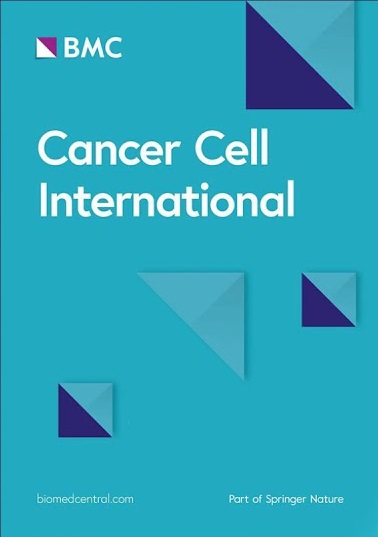A novel risk stratification approach and molecular subgroup characterization based on coagulation related genes in colon adenocarcinoma
IF 5.3
2区 医学
Q1 ONCOLOGY
引用次数: 0
Abstract
Colon adenocarcinoma (COAD) represents a significant health concern within the population. Advancing our understanding of COAD is imperative for early detection, enabling personalized treatment interventions, and facilitating the development of effective preventive measures. The coagulation system plays a role in tumor-related pathological processes; however, its specific involvement in COAD and potential contributors remain unclear. This study aimed to establish a novel risk stratification approach by analyzing coagulation related genes (CRGs) associated with COAD. Through a comprehensive bioinformatics analysis of data from public databases, we screened COAD associated CRGs and characterized the associated molecular subtypes. After a comprehensive analysis of the characteristics of each subtype, we applied differentially expressed genes in CRG subtypes to establish a new risk stratification method. Clinical subgroup analysis, immunoinfiltration analysis, therapeutic reactivity prediction and other analytical methods suggest the potential clinical value of the established risk stratification method. As one of the selected targets, the effect of MS4A4A on the proliferation and invasion of COAD was confirmed by in vitro experiments, which partially verified the reliability of bioinformatics results. Our findings delineate CRGs potentially implicated in COAD pathogenesis and offer fresh insights into the influence of the coagulation process on tumorigenesis and progression.基于结肠腺癌凝血相关基因的新型风险分层方法和分子亚组特征描述
结肠腺癌(COAD)是人类健康的一大隐患。加深对结肠腺癌的了解对于早期发现、实现个性化治疗干预以及促进有效预防措施的开发至关重要。凝血系统在与肿瘤相关的病理过程中起着一定的作用;然而,凝血系统在 COAD 中的具体参与情况和潜在诱因仍不清楚。本研究旨在通过分析与 COAD 相关的凝血相关基因 (CRG),建立一种新的风险分层方法。通过对来自公共数据库的数据进行全面的生物信息学分析,我们筛选出了与 COAD 相关的 CRGs,并确定了相关分子亚型的特征。在对每种亚型的特征进行综合分析后,我们应用 CRG 亚型中的差异表达基因建立了一种新的风险分层方法。临床亚组分析、免疫渗透分析、治疗反应性预测和其他分析方法表明,所建立的风险分层方法具有潜在的临床价值。作为选定的靶点之一,MS4A4A对COAD增殖和侵袭的影响通过体外实验得到了证实,这在一定程度上验证了生物信息学结果的可靠性。我们的研究发现了可能与 COAD 发病机制有关的 CRGs,并为凝血过程对肿瘤发生和发展的影响提供了新的见解。
本文章由计算机程序翻译,如有差异,请以英文原文为准。
求助全文
约1分钟内获得全文
求助全文
来源期刊

Cancer Cell International
ONCOLOGY-
CiteScore
10.90
自引率
1.70%
发文量
360
审稿时长
1 months
期刊介绍:
Cancer Cell International publishes articles on all aspects of cancer cell biology, originating largely from, but not limited to, work using cell culture techniques.
The journal focuses on novel cancer studies reporting data from biological experiments performed on cells grown in vitro, in two- or three-dimensional systems, and/or in vivo (animal experiments). These types of experiments have provided crucial data in many fields, from cell proliferation and transformation, to epithelial-mesenchymal interaction, to apoptosis, and host immune response to tumors.
Cancer Cell International also considers articles that focus on novel technologies or novel pathways in molecular analysis and on epidemiological studies that may affect patient care, as well as articles reporting translational cancer research studies where in vitro discoveries are bridged to the clinic. As such, the journal is interested in laboratory and animal studies reporting on novel biomarkers of tumor progression and response to therapy and on their applicability to human cancers.
 求助内容:
求助内容: 应助结果提醒方式:
应助结果提醒方式:


